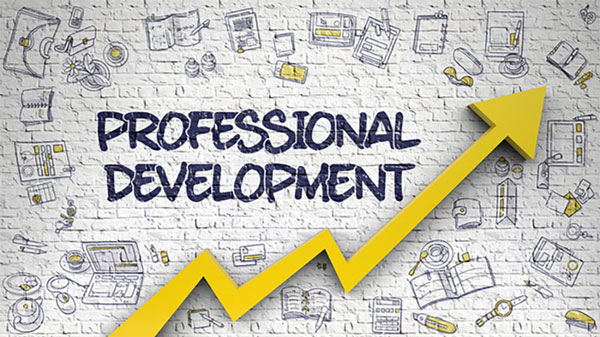The Very First Thing You Have to Do When Getting Into Real Estate
Oct 26, 2023 By Triston Martin
Are you thinking of getting into real estate? It can be unsafe whether you're just starting or transitioning to the field from another profession. But by doing just a few simple things up front, you will prepare yourself for success in your new venture.
In this blog post, we'll uncover the important steps to always be taken when launching their real estate career. From information gathering and networking to preparing mentally and financially – these are all essential steps everyone must take before embarking on their journey into real estate success! Come along as we unpack what's involved in this process.
The Basic Steps Guide to Getting Into Real Estate
Gather Research and Information
When getting into real estate, research is one of the most important steps you can take. Learn about the industry by reading books and blogs and seeking different resources online or from other professionals. You'll also want to become familiar with local laws, zoning regulations, and local trends that impact your potential success in a particular area.
Take the time to research different neighborhoods and types of properties available for sale in your area. Knowing the market rate of homes in different locations can help you make more informed decisions regarding negotiations. You'll also want to familiarize yourself with current tax laws and interest rates, as these will impact how much money you need upfront and how potential buyers finance their purchases. Lastly, better understand local financing options available for buyers and sellers.
Look Into Training Programs
Real estate requires knowledge beyond what you may have learned at work or school. Many states require licensure for individuals working as agents, appraisers, brokers, or property managers - so take classes that will help prepare you for these exams if necessary. There are even organizations such as NAR (National Association of Realtors) that provide specialized training and certifications to hone your skills.
Network
Networking with other real estate professionals can be invaluable in developing relationships with potential colleagues, clients, or mentors who could help you. Attend conferences, join professional organizations such as NAR, and connect with people on social media like LinkedIn to form meaningful connections.
Understand Your Finances
Real estate is an expensive industry, and you'll need to know exactly how much money you have available for startup costs and ongoing expenses. Ensure you understand all the fees associated with licensure, educational programs, and any technologies or tools you'll need - so that there are no surprises later on. Additionally, consider the cost of marketing materials, insurance, and any other services you may need to operate your business.
Prepare Mentally
Being a real estate agent is not easy - it's a lot of hard work and requires dedication to succeed. Before taking the plunge, consider whether this career path is right for you, and ensure that you have a strong support system. You'll also want to set aside time to relax and create boundaries between your professional life and your one.
Set Goals
Be clear about the goals you'd like to achieve as an agent to stay on track with your progress. Things like developing new relationships, listing homes, making sales, and acquiring certifications are all things to consider. Additionally, determine what type of agent you'd like to be, such as a residential agent or commercial specialist, and set measurable goals accordingly.
Choose the Right Brokerage
Before selecting a brokerage, research options in your area and ensure they align with your long-term goals. Speak with other agents and ask for their opinions on various brokerages to get an honest view of who is the best fit for you. Consider factors such as commission splits, additional fees, and technology offerings before deciding.
Devise a Business Plan
Having a plan in place will help focus your efforts so that you can achieve success in your new career. Your plan should include your target audience, marketing strategies, and how you plan to grow as an agent. Additionally, set aside time in your business plan for continuing education since staying up-to-date with industry trends is essential.
Get Licensed
In most cases, agents are required to obtain a license before they can start practicing real estate. Requirements vary from state to state, so make sure you know exactly what is needed to become licensed in the area where you will be working.
Develop Professional Skills
Real estate agents must develop strong communication and customer service skills to thrive. Take the time to hone these abilities by reading books or taking courses focusing on the topic. Additionally, practice active listening when speaking with clients to ensure you understand their needs and can provide appropriate solutions. Remember that, although it may take time to build relationships with clients, providing exceptional customer service will help you stand out from the competition.
To become successful in real estate, agents must also develop strong organizational and negotiation skills. Stay organized using a filing system or tracking software for all your transactions and client information. Additionally, learn how to think on your feet and negotiate deals while keeping your client’s best interests at heart. Negotiating can be intimidating initially, but it is an important skill to close sales.
Market Yourself
A strong marketing plan will help you reach potential customers quickly and effectively. Utilize digital platforms such as social media, webinars, and email campaigns to promote your services and generate leads. Consider traditional methods such as signage or direct mail for local markets. You can also join your local chamber of commerce or real estate associations to help grow your connections and visibility.
Build a strong website showcasing your listings, experience, and professional qualifications. Invest in professional headshots for digital and printed materials so potential clients know what you look like before they meet you. Ensure the content is updated frequently with fresh information about new listings or helpful tips for buying or selling homes.
FAQs
Q: What is the first thing I must do when getting into real estate?
A: The first thing you should do when getting into real estate is gather as much information as possible. Research local and national laws, regulations, and trends related to the field. Familiarize yourself with different types of real estate transactions and contracts. Educate yourself on various real estate financing options available, such as cash deals or mortgages. Learning about these topics will give you a better understanding of how things work in the industry.
Q: Are there any networking opportunities that I can tap into?
A: Absolutely! Networking is important to success in any profession, especially in real estate. Reach out to local real estate agents, brokers, and other professionals in the industry. Attend real estate-related events and conferences, join online forums, and use social media platforms. These strategies will help you build relationships with people in your field and expand your reach.
Q: How can I prepare mentally for a career in real estate?
A: Real estate is unpredictable, so going into it with a positive attitude and realistic expectations is important. Ensure you have the right knowledge and skills, including staying current on market trends, financial planning basics, customer service tactics, sales techniques, etc. Additionally, setting clear goals for yourself can help keep you motivated and on track.
Conclusion
Getting into real estate is an exciting decision that can lead to great success. By following the steps above, you will ensure that you are well-prepared for the journey ahead. From gathering information and setting goals to selecting a broker and marketing yourself – make sure to cover all your bases before diving into this career path.

Taxes
For College Savings Accounts, Taxes Can Be Confusing
you’ve been saving for college for years in a 529 plan. Now is when you begin withdrawing money from your retirement account to pay for college—first, a brief history lesson. With a 529 account, consumers may save and invest in college while avoiding taxes. Donations that have already been taxed can be made tax-free, and withdrawals used to pay for qualified higher education expenditures are exempt from federal income taxation.
Learn More
Banking
Charlie Financial Review 2024: Trends, Insights, and Predictions
Discover how Charlie empowers users with innovative budgeting tools, personalized investment guidance, and educational resources for effective personal finance management.
Learn More
Investment
The Very First Thing You Have to Do When Getting Into Real Estate
Thinking of getting into real estate? Learn the essential steps everyone must take before embarking on their journey, including information gathering, networking, and more. Get all the details you need here!
Learn More
Know-how
Managing Finances in Small Business: Practical Tips and Strategies
Tips for small business financial management. Strategies for maintaining healthy business finances.
Learn More
Investment
Solving Stock Symbols: Guide to Ticker Symbol Significance
Companies with similar names are also distinguished by stock symbols. Citigroup and Citizens Financial Group, trading under 'C' and 'CFG' on the NYSE, are different corporations but share names. Read more.
Learn More
Know-how
Navigating Personal Finances: What to Do When a Loved One Owes You Money
Navigate when a loved one owes you money: Open communication, crafting agreements - Strategies for resolving finances, preserving relationships.
Learn More
